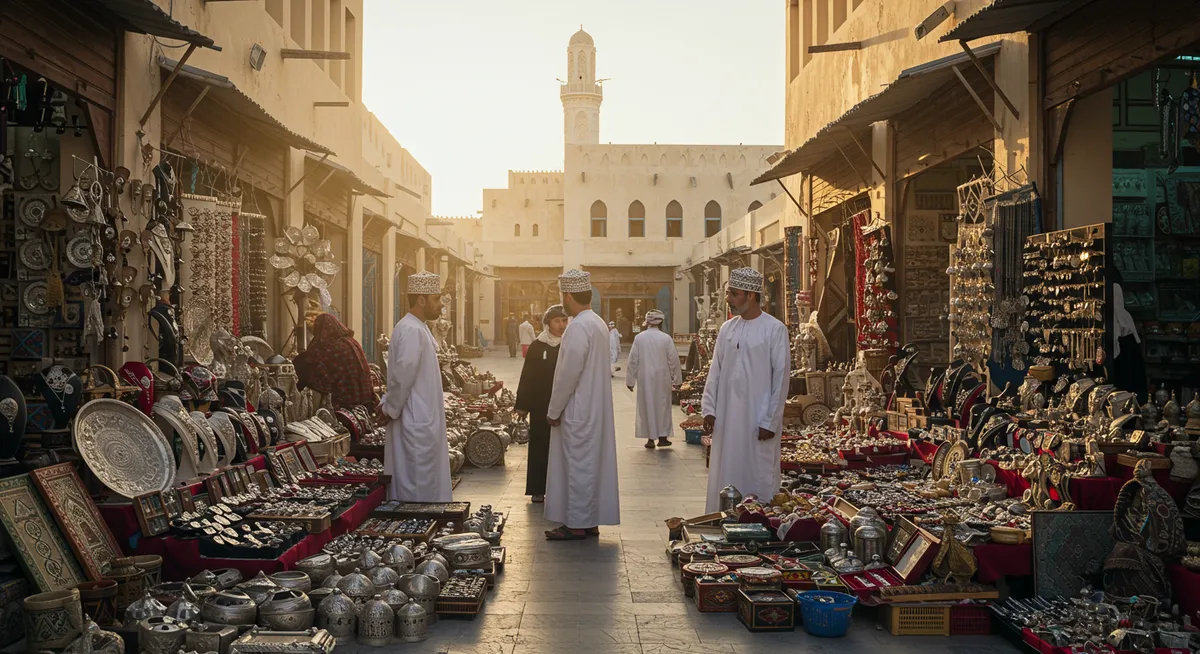
Discover Salalah's Local Markets & Traditional Crafts
Table of Contents
Want to find the best travel deals for this destination? Chat with our travel hacking specialist!
Get Travel HacksCategory: salalah-local-markets-and-traditional-crafts
Salalah's Authentic Soul: A Guide to Its Markets & Crafts
Having explored countless souks across the Middle East, Salalah's vibrant local markets offer a truly distinct cultural immersion. Here, amidst the aromatic swirl of frankincense and spices, lies the heart of Omani heritage, expressed through its exquisite traditional crafts. This guide will take you through the bustling alleys and hidden gems, revealing where to find authentic treasures and how to engage with the rich traditions of Dhofar. Understanding the local customs and the story behind each handcrafted item transforms a simple shopping trip into a profound cultural journey. Let's delve into the soul of Salalah through its captivating marketplaces and artisan skills. Enhance your Salalah experience with our Salalah itinerary. Discover hidden gems with our Salalah hidden gems.
Souk Al Haffa: Salalah's Aromatic Heart
Stepping into Souk Al Haffa, Salalah's most iconic marketplace, is an immediate assault on the senses—in the best possible way. The air is thick with the sweet, resinous scent of frankincense, the very essence of Dhofar. As a travel content creator, I've seen many markets, but few rival the authenticity here. Beyond the myriad grades of frankincense, you'll discover traditional Omani attire, intricate silver jewelry, and local produce like dried fruits and honey. Don't be shy; friendly vendors often offer samples and are keen to share the stories behind their wares. It's truly the pulse of Salalah local markets, offering a unique glimpse into daily life. Enhance your Salalah experience with our Salalah itinerary. Plan your perfect trip with our Salalah itinerary. Get deeper into salalah via Salalah festival guide.
Unearthing Salalah's Traditional Crafts
The traditional crafts of Salalah are a testament to centuries of Omani artistry, deeply rooted in the region's heritage. From the exquisite silverwork that adorns khanjar daggers and jewelry to the vibrant hand-woven textiles, each piece tells a story. I once observed a weaver meticulously crafting a traditional `wizar` (shawl), a process that can take weeks, reflecting immense dedication. Pottery, often adorned with simple yet striking patterns, and leather goods are also prominent. These traditional crafts are not just souvenirs; they are living representations of a culture, often passed down through generations. For more unique finds, explore Salalah's hidden gems beyond the obvious. Find local favorites with our Salalah hidden gems.
Tips for an Authentic Market Experience
To truly immerse yourself in Salalah local markets, a few tips can enhance your experience. Firstly, bargaining is expected and part of the cultural exchange; approach it with good humor. Visiting in the late afternoon or early evening often provides the most vibrant atmosphere as locals gather. Always ask for permission before taking photographs, especially of people. Many vendors appreciate genuine interest in their craft over a quick sale. Consider exploring some Salalah off-the-beaten-path experiences to combine your market visit with deeper cultural insights.
Beyond the Souk: Specialized Craft Shops & Galleries
While Souk Al Haffa is the main draw for Salalah local markets, the city also hosts smaller, specialized craft shops and galleries that offer a different shopping experience. These often feature higher-end, more curated selections of traditional crafts, ideal for those seeking unique artisanal pieces. You might find contemporary interpretations of Omani silver, bespoke pottery, or galleries dedicated to preserving specific textile traditions. These places provide a quieter environment to appreciate the intricate details of the craftsmanship and often offer fixed prices, removing the need for bargaining. They complement the bustling souk scene perfectly.
Frequently Asked Questions
What is frankincense used for in Salalah?
Are Salalah markets open every day?
Exploring Salalah's local markets and traditional crafts offers an authentic window into the soul of Oman. From the fragrant aisles of Souk Al Haffa to the exquisite details of handcrafted silver and textiles, these experiences provide far more than just souvenirs; they offer a tangible connection to Dhofari heritage. I hope this guide helps you navigate the vibrant scene and discover treasures that tell stories for years to come. For more on planning your Omani adventure and delving deeper into its unique culture, visit SecretLocale.com.